#Black Indian
Explore tagged Tumblr posts
Text
American Indian 🇺🇸








#Amerindian#American#Black American#foundational black american#FBA#soulaan#soulaani#black history#ancestry#indigenous#Black Indian
15 notes
·
View notes
Text
Florida’s Afro-Indigenous Connections to Cuba

Florida’s history is deeply interwoven with the legacies of Afro-Indigenous communities, particularly the Muscogee, Seminole, and maroon societies, as well as their enduring connections with Cuba. This narrative explores how these cultures intersected through shared struggles for freedom, cultural exchange, and significant historical events.
Muscogee Warriors and Cuban Imprisonment: A Key Connection
One of the pivotal elements in this Afro-Indigenous narrative is the story of Muscogee warriors imprisoned in Cuba. In 1792, Muscogee warrior Estejoca led an attack on a Spanish store at San Marcos de Apalache in Florida. Captured by the Spanish, Estejoca was imprisoned in Cuba, Madrid, and even Manila in an attempt to remove him from his influence in Florida. However, his story does not end there. Estejoca made a daring escape while en route to Spain and found his way back to Florida, after stops in England and Nassau. This episode is significant as it demonstrates the longstanding interaction between the Muscogee and Spanish colonial powers, including Cuba.
Additionally, Indigenous people from the continental Southeast, including the Muscogee Creek peoples, continued to travel to Havana after Spain relinquished control of the region. This travel, whether for trade, political alliances, or cultural exchanges, further deepened the Afro-Indigenous connections between Florida and Cuba.
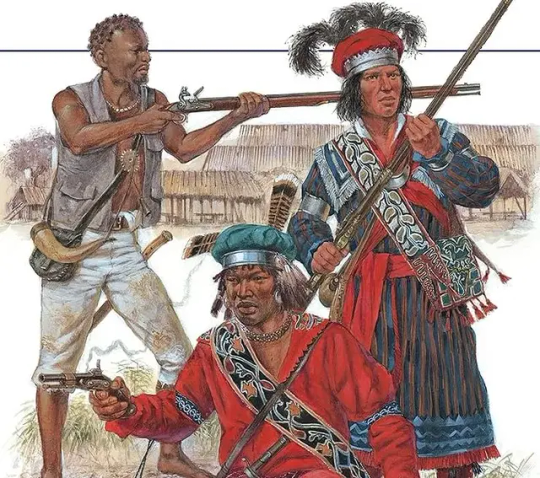
The Muskogee and Seminole Spiritual Legacy
The Muscogee language and spiritual practices have left a lasting imprint, particularly in Afro-Cuban religious traditions. The Muscogee words Polleta (meaning “conjuration”) and Polla (meaning “conjurer”) offer insight into how Afro-Cuban terms like Palo and Palero might not have originated in Spanish but instead may have traveled through Muscogee and Cuban cultural exchanges. This linguistic thread suggests that the interactions between Indigenous and Afro-Cuban communities contributed to the development of spiritual practices on both sides of the Gulf.
The Seminole people, who are closely related with the Muscogee, held the kapok tree sacred, similar to the Iroko. The reverence for this tree is mirrored in African traditions, where the Iroko tree is seen as a spiritual symbol. This points to a cross-cultural resonance between Seminole beliefs and those of Afro-Cuban practitioners, further deepening the link between Florida’s Indigenous populations and Cuban spiritual traditions.
The Story of Angola: A Community of Resistance
One of the most significant historical sites that highlight Afro-Indigenous connections is the maroon community of Angola. Located near the Manatee River in early 19th-century Florida, Angola became a refuge for up to 750 escaped enslaved Africans and Black Seminoles who fled from enslavement and persecution. Following the War of 1812, when the British left their garrison at Prospect Bluff, many maroons, including those from Angola, found sanctuary.
Angola stands out for its size and organization. Most maroon communities were small and mobile to avoid detection, but Angola’s population thrived, with up to 750 individuals farming, trading, and building a life of self-sufficiency. The settlement maintained close trade ties with Cuban fishermen and regularly exchanged goods such as deer hides and bird plumage for other supplies, illustrating the fluid cultural and economic exchanges between Florida and Cuba.
Cultural Exchange and Economic Ties
Angola’s connection with Cuba is further evidenced by the linguistic and cultural exchanges between maroons and Cuban traders. Names like Congo and Mayambe, which appeared among Florida’s maroon communities, are testaments to the African and Caribbean cultural influences present in Florida. Mayimbe, a term used by the Taino people to denote a high-ranking official or chief, was also used by some maroon leaders. This term’s use within maroon societies underscores the Afro-Indigenous fusion of leadership, language, and spiritual practices.
Angola’s residents were not only resourceful farmers and hunters, but also adept traders, often traveling in large dugout canoes to Cuba, the Bahamas, and Jamaica. These voyages, sometimes for bartering goods, also served political purposes. The Black Seminoles sought to negotiate their status under the 1819 Adams-Onis Treaty, which ceded Spanish Florida to the U.S. and promised rights to its inhabitants.
The Tragic Fall of Angola
Despite its success, Angola eventually caught the attention of American authorities. In 1821, General Andrew Jackson ordered an attack on the settlement. His Creek allies razed Angola, forcing its inhabitants to scatter across the Florida peninsula. Many of the maroons and Black Seminoles were captured or killed, but some found refuge further south, traveling to Cape Florida, where Bahamian fishermen aided their escape to Andros Island in the Bahamas. Here, they lived as free British subjects.
Broader Historical Context: Afro-Indigenous Resistance and Survival
The fall of Angola reflects a broader historical pattern of Afro-Indigenous resistance in the Americas. Throughout the late 18th and early 19th centuries, maroon communities fought against the encroachment of European settlers and enslavers. The Afro-Indigenous populations of Florida, including notable leaders like Congo Tom and Carlos Mayamba, played crucial roles in these struggles. These leaders exemplified the fusion of African and Indigenous identities, leading their communities with wisdom and resilience.
These maroons and Black Seminoles navigated complex political landscapes, often seeking alliances with both Spanish and British colonial authorities. Their interactions with these powers underscore how interconnected Florida’s Afro-Indigenous people were with the wider Caribbean.
Modern-Day Connections and Cultural Legacy
Today, the legacy of Florida’s Afro-Indigenous connections to Cuba continues to resonate. The annual Back to Angola Festival, inaugurated in 2018, brings descendants of the Angolan maroons — many of whom live in the Bahamas — back to the Manatee Mineral Spring site in Florida. This festival celebrates the resilience of the maroons, the Black Seminoles, and their shared history of resistance.
The importance of honoring these cultural ties cannot be overstated. Modern scholars have also begun to uncover more about the shared histories between Florida’s Afro-Indigenous populations and Cuba, helping us appreciate the full scope of these cultural exchanges. The linguistic, spiritual, and political connections forged between maroons, Indigenous people, and Afro-Cubans highlight a transnational narrative of survival, adaptation, and cultural fusion.
Conclusion: Honoring a Shared Legacy of Resistance
The Afro-Indigenous connections between Florida and Cuba offer a rich and complex narrative of resistance, cultural exchange, and survival. From the Muscogee warriors imprisoned in Cuba to the maroon societies that thrived through their trade and political interactions with Cuban fishermen, the stories of these communities remind us of their agency and resilience.
As we continue to explore this interconnected history, we are reminded that these narratives form an essential part of the African diaspora and Indigenous heritage in the Americas. By preserving and celebrating these stories, we ensure that future generations understand the enduring spirit of those who fought for freedom and the deep cultural ties that shaped the history of both Florida and Cuba.
6 notes
·
View notes
Text
Vintage Photos of Queer Couples of Color

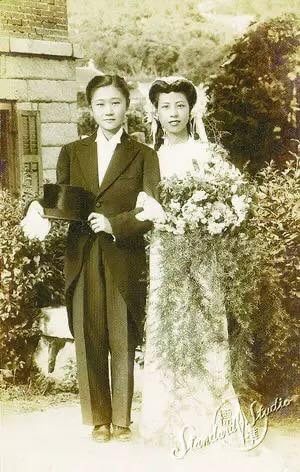

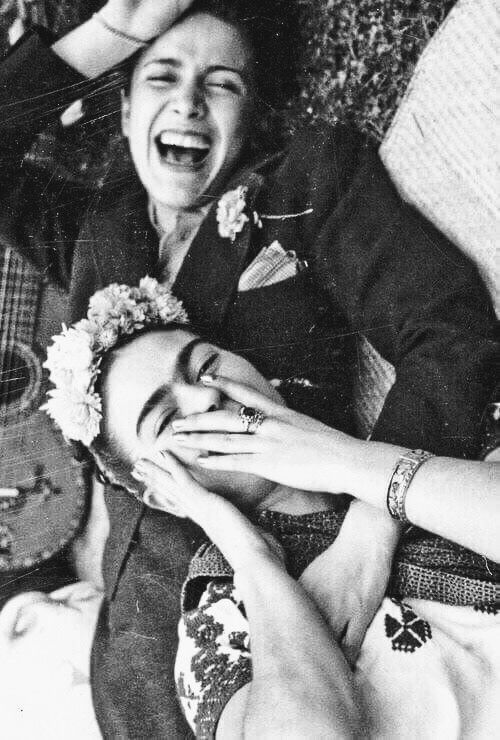
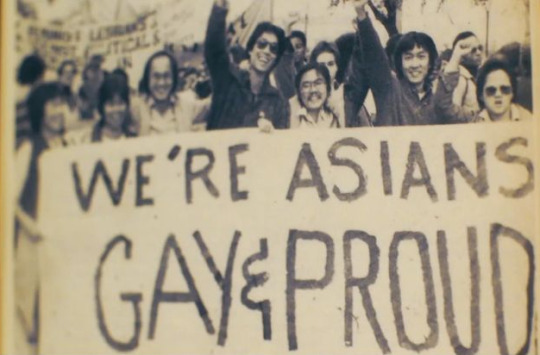
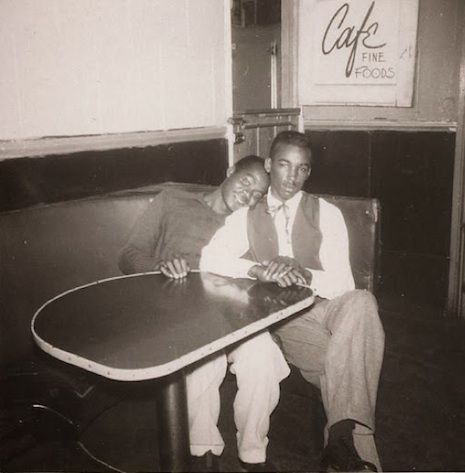

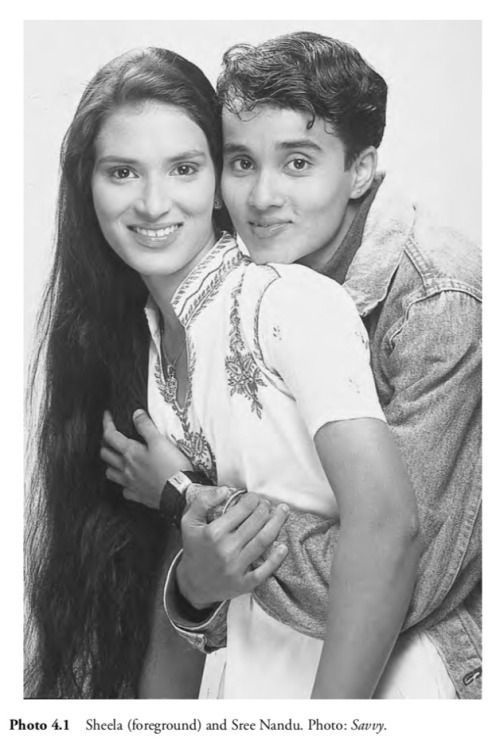
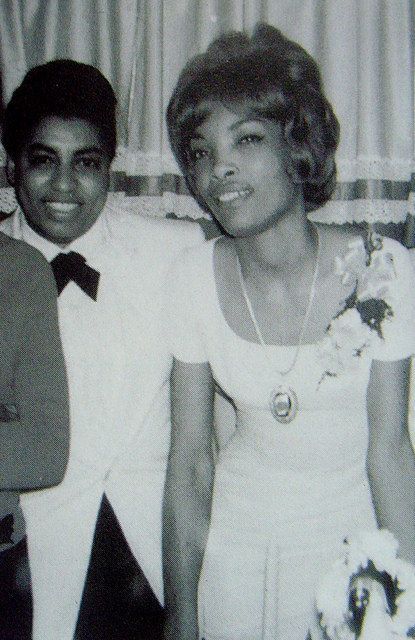
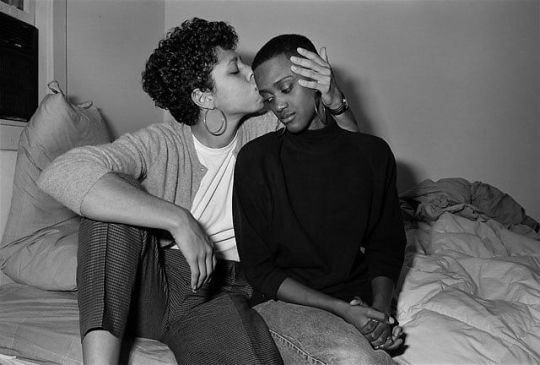
#queer#sapphic#lesbian#wlw#mlm#mlm post#mlm positivity#wlw yearning#wlw love#wlw positivity#queer history#black lesbian#gay man#black queer#black women#indian#desi#asian#lgbt pride#lgbtqia#lgbtq#lgbtq community#gay
21K notes
·
View notes
Text
Regulus: I got 1% Indian on an ancestry DNA test.
Barty: 1% Indian? How could that have happened with your family?
Regulus: Well, it was a mouth swab test.
#indian james potter#harry potter series#marauders era#the marauders era#the marauders#marauders#james potter#james x regulus#jegulus#regulus black#regulus x james#starchaser#sunseeker#barty crouch junior#barty crouch jr#based of an instergram reel of a comedian i saw ages ago
3K notes
·
View notes
Text

#Melanin#African#Imperialists#Black Family#Melanated#Aboriginals#Indigenous#Aboriginal Indians#Aborginals#Chele Yeboah#Eugenics#Black Is Beautiful#Ancient Hebrews#Blackamoor#Moors#Moorish#Christian Moors#Black Love#Black Beauty#Black Panther Party For Self Defense#Ghana Women#African Women#Black Women#Black Man#Black Yout#Ayiti#Black Unity
562 notes
·
View notes
Text

Photographic half-length portrait of a Native American (Dakota) man named Sun Flower, taken by a photographer for Heyn Photo in 1899. Now in the Prints and Photographs Division, Library of Congress.
#photography#history#historic photography#portrait#photo portrait#Native American#American Indian#Dakota people#Dakota Sioux#19th century#19th century photography#black and white#b&w#b&w photography#photographic print#Library of Congress
568 notes
·
View notes
Text
Why did I already see two posts talking about how weird it is that Pavitr and Hobie are besties despite Pavitr’s clear resentment towards the British?
Like what parallels do you people even conjure up between White monarch colonizers stealing Indian possessions vs a Black anarchist punk?
Y’all just stay calling Black people colonizers for no reason
#across the spiderverse#hobie brown#pavitr prabhakar#there are Black and Indian people living in Britain for a reason did y’all consider that?#anyways same energy as calling Black Americans colonizers
4K notes
·
View notes
Text

489 notes
·
View notes
Text
Gigantic ass 💕💫
Unlock the gates to Patreon and indulge in an irresistible world of exclusive, seductive content, curated solely for your pleasure. 🔥 Patreon: https://www.patreon.com/GirlsThickAI Thanks for the support! ❤️✨

#thicc babe#slimthick#perfect butt#cellulite#thick thighs#beautiful body#huge butt#thicc af#perfect breast#black hair#indian#india#ebonycurves#thick ebony#sexy ebony#ebony women#ebony#perfect girl
514 notes
·
View notes
Text












costumes for various villainesses, demonesses and other supernatural creatures in Journey to the West (1986)
costume design by Wang Yunqi
#costumeedit#cdramaedit#cdrama#tvedit#fantasyedit#cdramagifs#journey to the west#journey to the west 1986#white bone spirit#white bone demon#apricot fairy#jade faced vixen#scorpion demoness#wansheng princess#black fox demon#albino rat#spider demons#princess iron fan#lady earthflow#pipa lady#jade faced princess#golden nosed albino rat#no jade rabbit since she's just stealing the Indian princess' clothes#西遊記
390 notes
·
View notes
Text
SANTA'S IN TOWN | J.P X READER
word count \ 1.4k | chritstmas fluff | slash / james potter x reader
in which you dress james up as santa to surprise your kid author's note at the end!
FICMAS MASTERLIST

SANTA'S IN TOWN | J.P X READER
The fireplace was warmly lit right in the middle of the living room, Hari surrounded with people in the living room.
Sirius and Remus were both snuggled tight on the couch, with Sirius complaining about being cold despite being directly in front of the fireplace. Marlene, Dorcas, and Mary were sat on the rug with Harry, playing trains on the rug you had gotten for him recently.
It was a small gift for Hari, a little rug with train tracks and other designs on it made so he could play with his toys. Of course, James ended up using it more than you did, but at least he used it with Harry most of the time.
Which led you to where you were right now. Currently holding the white beard your husband would have to put on to finish his Santa costume.
“Are you sure that I have to go out there looking like this?” James grumbled, his hands running through his hair that had been charmed white. “Sirius will definitely call me old!”
“Is that a bad thing?” you asked, looking at him with a small smirk. “I think you look rather dashing with the white hair, y’know.”
“Now that you mention it,” he mumbled under his breath, running his hand through his hair again as he leaned forward a bit more. In all honesty, he did look rather good with white hair. “I do look rather dapper, if I do say so myself.”
“Yes you do,” you smiled, walking forward and kissing his cheek lovingly. “You wanna put the beard on now?”
“Yeah, yeah,” he said, grabbing the beard and putting it on. You thought that he made a rather good Santa, especially after seeing his eyes crinkle at the side. “You think Hari will like it?”
“I think he’ll love it.” you whispered, kissing his cheek lovingly. You knew Hari would love it, even though the clever boy would probably realize it was his dad after a couple of minutes. “He can’t love something he doesn’t know exists though.”
James gasped dramatically before nodding. “You’re right!” he said, quickly rushing to the door to grab the boots he bought for the costume.
“I’ll go out first,” you smiled, kissing his forehead. “Thank you for doing this.”
“Anything for you,” he whispered softly, pouting as he realized he couldn’t kiss you. He compromised, instead booping your nose with his gloved hand. “And Bambi, of course.”
You chuckled at that. “I love you.”
“Love you more.” he smiled softly.

“Hari!” you smiled widely, walking up to him as he waddled to you. “Hey baby.”
“Mama!” he smiled, hugging you as tight as a five year old really could. Which, surprisingly, was rather tight. “Where were you?”
“Mama was helping Daddy get ready for work,” you said with a small smile, kissing his forehead lovingly. “And, she has been very busy writing some letters to Santa for you.”
“Santa is coming?” Hari asked you excitedly, jumping up and down before you got a chance to say yes or no. “Thank you mama!”
“You’re welcome sweetheart,” you whispered, kissing his forehead and leading him to the couch.
Everyone got ready near the tree for photos, the fireplace barely crackling now as the kindle wood finally burnt itself dry. Remus was currently holding the camera, extending his arm far so everyone was in the photo. Lily, Mary, Marlene, and Dorcas were all standing together. Sirius was planning on hanging off of Remus’ shoulder, though him and Regulus started fighting midway through. Barty and Frank were both laughing in the background, Evan hitting them both with a newspaper.
And you were off in the corner with Hari in your arms, currently bouncing him up and down to distract him from all the noise. As much as you and Hari loved your family, you found that he didn’t like loud noises very much or very often.
“What’s on your mind, bubs?” you whispered, trying to divert his attention to just you while you had the chance. You didn’t need to try too hard to distract him though, as he was currently staring down the fireplace. “Something cool over there?”
“The fire’s green,” he mumbled, hand pointing at the tiny embers left kindling.
You gasped dramatically, watching as the fire roared and a tall man came out. He had on a red outfit and hat, along with glasses and white hair. “Is that Santa Claus?”
“Santa Claus!” Hari said happily, clapping his hands. Both of you walked over to where Santa, James, was standing. He had a sack of presents flung over his shoulder, and a wide smile on his face. “Hi there Mr. Santa!”
“Well, hello there!” James said, leaning down as his smile brightened even farther. He had gone the extra bit to try and deceive Hari, changing his eyes to a light blue color and his voice to a higher tone. “I’ve been told I’m making a visit to a very special boy this year, is that right?”
“I dunno,” Harry said, shrugging simply as he rested in your arms. “What’s his name?”
“Let me check.” James said seriously, pulling out a parchment paper with Hari’s name written in bold black ink. “His name is Hari Potter, do you know him?”
Hari laughed, clapping his hands again as he looked at the paper. “That’s me!”
“That’s you?” he asked, gasping dramatically before chuckling. His hands reached out to hold Hari, which you easily obliged to. “Well I’ll be, I’ve met a celebrity then!”
“I’m not a celebrity, Mr. Santa.” he said, still giggling. “I’m just Hari.”
“Just Hari is a great thing to be.” he smiled, placing Hari down on the floor before placing his sack of presents next to him. “Your mom pulled in a little favor and said you can open a couple of presents early, did you know that?”
Hari looked up at you with the widest smile you had ever seen on his face, and you knew that moment was one of the best moments you would ever have in your life. James obviously thought so too, his eyes crinkling from smiling so hard. You weren’t sure if he could even see with how far they crinkled, but you knew that he wouldn't care much.
“I can?” Hari asked excitedly, smiling brightly.
“Yes, ‘course you can.” James smiled, pulling out a medium sized present and handing it to Hari. “Here you go, Merry Christmas.”
Hari gasped loudly, opening it up to find a book that he had been wanting for ages. It was one you saw him eyeing every time you went to Hogsmeade, a book about the Quidditch team that his father played on. It listed every single member and their rank on the team, including photos of James and his broom. That was always Hari’s favorite part.
“Thank you so much Mr. Santa!” he smiled brightly, waddling over to the big green arm chair you had dedicated to your nightly reading sessions.
“Thank you, Mr. Santa.” you said softly, rubbing Hari’s hair lovingly as you kept the bit up. You watched as he opened the book and ran his fingers over the words so he could read it easier. You smiled softly, kissing his forehead with as much love as you could ever muster.
Santa Claus, or James, went through the fireplace just as quick as he appeared. His body went through in a green and misty fire, most likely apperating back to the bedroom to undress. You sat down next to Hari, the chair big enough for both of you to sit and read.
You barely noticed the rest of your family going around the house, Sirius and Barty guiding most of them to the kitchen for shots. Lily and Mary stayed behind though, both of them sitting next to you and helping you reenact the stories the book told.

“Dada!” Hari said, his eyes focusing on James as soon as he walked down the stairs. “You just missed Santa Claus!”
“I did?” James asked dramatically, frowning deeply as he stepped forward into the living room. “It seems he left presents too.”
“Oh yes, tons of them.” you smiled. “He even let Hari open one early, isn’t that right Hari?”
“Yeah!” he said, holding up the book with your assistance. “Look dada, it’s you!”
James smiled brightly as he saw the book, though you could tell it was a smile of genuine shock. James had been distracting Hari while you shopped for and wrapped presents, which made unwrapping the presents all the more remarkable.
“That is me!” he said, kneeling down to rest his head on the armrest of the large reading chair. “Why don’t you read it to me, bub?”
“Okay!” Hari smiled, sitting up properly as his fingers traced the words once more. His voice came out neat and crisp, even if he did stumble over a couple of words sometimes.

AUTHOR'S NOTE
i mainly worked on this today, but i did start on it yesterday so there's that i think? i'm still trying to recover from losing my daily streak that i had :/ BUT i will get back into it, maybe more like two to three times a week rather than every day. as a sidenote, i made a second blog for reposts and other things! if you want to check it out, its @meelusinees
AS ALWAYS, please like, comment, and reblog! i thank everyone who does genuinely it means so muchh and thank u all for the support!
#fanfiction#harry potter fanfiction#fluff#fanfic#extra fluff#the marauders#<3#james potter x y/n#james potter x you#james potter x reader#james potter#marauders#marauders era#black brothers#remus lupin#sirius black#hp marauders#lily evans#mary macdonald#marlene mckinnon#mild dorcas x marlene#dorcas meadowes#regulus black#james fleamont potter#baby harry potter#indian james potter#indian harry potter#christmas fluff#ficmas 2024
162 notes
·
View notes
Text
#caribbean#caribbean culture#caribbean women#caribbean woman#caribbean gyal#carnival#carnival 2023#Barbados#bajan#crop over#crop over 2023#wine#dance#soca#west indian#west indies#krave the band#island gyal#island life#black#black women#black woman#black women are beautiful#black is beautiful#beautiful woman#beautiful#beautiful women
2K notes
·
View notes
Text

Chele Yeboah - Instagram
#Melanin#Chele Yeboah#Aboriginals#Aboriginal Indians#Africa#Black Panther Party For Self Defense#Melanated#Black Economics#Black Is Beautiful#Black Family
330 notes
·
View notes
Text
harry didn’t grow up with stories of james potter, the indian boy who ran through hogwarts, loud and proud and full of life. he didn’t know that his father’s voice would fill the great hall with laughter, or that james would argue passionately in defense of his culture, unafraid to bring the fire of his heritage into every room he walked into.
but as harry gets older, he starts piecing things together, collecting fragments of a man who left echoes behind him. he learns from professors that james would use his wand to create vibrant garlands during festivals, brightening the gryffindor common room with colors his classmates had never seen. he’d coax sirius into trying spicy food they’d never even heard of, laughing as they both coughed and spluttered but insisted on more. and when they celebrated deepavali, james would tell them, grinning with pride, about how it wasn’t just a festival of lights, but a reminder of resilience, of the light within that never dims. he'd shown that same resilience during the war.
harry hears whispers from people who knew his father—the way james insisted on using tamil compliments because they “sounded much better,” the way he would answer teachers in tamil just to remind everyone where he came from. the way he’d refer to remus as “nanbaa” (friend), that special affection saved for the people who shared your burdens. how he called lily his “thangam” (gold) because of the colour her hair shone in the sunlight.
and slowly, harry begins to reclaim pieces of his father. he learns how to wrap a veshti, stubbornly practicing until he gets it right, because he knows it’s something james would’ve worn proudly. he finds comfort in the smell of his dad’s favorite spices, brings them with him to work as his own quiet rebellion, and teaches ron and hermione how to roll up chapatis late at night in grimmauld place.
#desi!james potter#desi harry#indian harry potter#tamil#poc harry potter#mod des#hp#Harry Potter#South Indian Harry Potter#desi harry potter#Tamil Harry Potter#marauders#wolfstar#remus lupin#james and sirius#marauders headcanon#sirius orion black#harry potter#marauders map#sirius being sirius#the marauders#james & peter & remus & sirius#peter pettigrew#james fleamont potter#desi james potter#james potter#cherry<3#writing#ao3#headcanon
198 notes
·
View notes
Text
Desi Parenthood, Adoption, and Stereotypes
I have a story set in the modern day with supernatural traces, with three characters: a young boy, his bio dad, and his adoptive dad. The boy and his bio dad are Indian, the adoptive dad is Chinese. The bio dad is one of the few people in the story with powers. He put his son up for adoption when he was a child because at the time he was a young single father, had little control of the strength of his powers: he feared accidentally hurting his child. The son is adopted by the other dad, who holds spite to the bio dad for giving up his son since he lost his father as a young age and couldn't get why someone would willingly abandon their child. This also results in him being overprotective and strict over his son. When the child is older, the bio dad comes to their town and the son gets closer to him, which makes the adoptive dad pissed, mostly acting hostile to the other guy, paranoid that he'll decide to take away the child he didn't help raise. Later when they get closer he does change his biases. I can see the possible stereotypes here: the absent father being the darkskinned character, the light-skinned adoptive dad being richer than the bio dad, the lightskinned character being hostile and looking down on the darkskinned character, the overprotective asian parent, the adoptive dad assuming the bio dad abandoned the son. The reason for his bias isn't inherently racist, but I get how it can be seen that way. Is there a way to make this work? Would it be better to scrap it?
Two problem areas stand out with this ask:
You seem confused with respect to how racial stereotypes are created, and what effect they have on society.
Your characterization of the Indian father suggests a lack of familiarity with many desi cultures as they pertain to family and child-rearing.
Racial Stereotypes are Specific
Your concern seems to stem from believing the absent father trope is applied to all dark-skinned individuals, when it’s really only applied to a subset of dark-skinned people for specific historical/ social/ political reasons. The reality is stereotypes are often targeted.
The “absent father” stereotype is often applied to Black fathers, particularly in countries where chattel slavery or colonialism meant that many Black fathers were separated from their children, often by force. The "absent black father" trope today serves to enforce anti-black notions of Black men as anti-social, neglectful of their responsibilities, not nurturing, etc. Please see the WWC tag #absent black father for further reading.
Now, it’s true many desis have dark skin. There are also Black desis. I would go as far as to say despite anti-black bias and colorism in many desi cultures, if one was asked to tell many non-Black desis from places like S. India and Sri Lanka apart from Black people from places like E. Africa, the rate of failure would be quite high. However, negative stereotypes for desi fathers are not the same as negative stereotypes for non-desi Black fathers, because racially, most Black people and desis are often not perceived as being part of the same racial group by other racial groups, particularly white majorities in Western countries. Negative stereotypes for desi fathers are often things like: uncaring, socially regressive/ conservative, sexist. They are more focused around narratives that portray these men as at odds with Western culture and Western norms of parenting.
Desi Parents are Not this Way
Secondly, the setup makes little sense given how actual desi families tend to operate when one or both parents are unable to be present for whatever reason. Children are often sent to be raised by grandparents, available relatives or boarding schools (Family resources permitting). Having children be raised by an outsider is a move of last resort. You make no mention of why your protagonist’s father didn’t choose such an option. The trope of many desi family networks being incredibly large is not unfounded. Why was extended family not an option?
These two points trouble me because you have told us you are writing a story involving relationship dynamics between characters of both different races and ethnicities. I’m worried you don’t know enough about the groups you are writing about, how they are perceived by each other and society at large in order to tell the story you want to tell.
As with many instances of writing with color, your problem is not an issue of scrap versus don’t scrap. It’s being cognizant of the current limits of your knowledge. How you address this knowledge deficit and its effect on your interpretation of your characters and the story overall will determine if readers from the portrayed groups find the story compelling.
- Marika.
I have one response: what? Where are the father’s parents? Any siblings? Is he cut off? Is he American? A Desi that has stayed in India?
Estrangement is not completely out of the question if the father is Westernized; goodness knows that I have personal experience with seeing estrangement. But you haven’t established any of that. What will you add?
-Jaya
#Black#Indian#South Asian#Desi#absent black father#stereotypes#tropes#adoption#colorism#research research research#parenting#strict Asian parents#Asian families
689 notes
·
View notes
Text
Just incase you're having a bad day, I want you to know that in some universe Fleamont Potter is probably throwing it back Desi drunk dad style at a jegulus wedding
#fleamont potter#desi james potter#regulus black#jegulus#james potter#you haven't left lived if you haven't seen your drunk indian uncle trying to screw on hypothetical lightbulbs#wolfstar#desi dads#also effie joining him and them having one of those moments by#oh shit#i have to write a ff now#*sigh*
1K notes
·
View notes